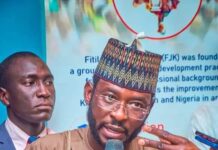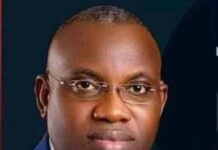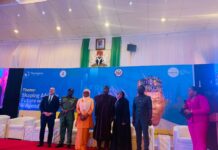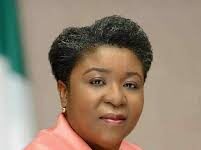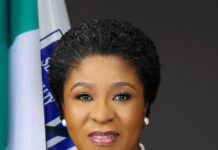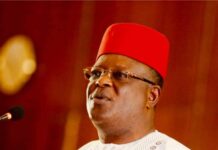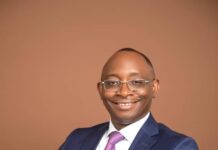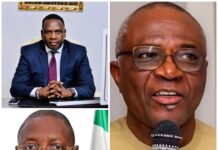Falana Advocates Action on Electoral Impunity
POLITICS DIGEST – Human Rights Lawyer, Mr Femi Falana, has warned that if nothing was done to address impunity in the electoral system, Nigeria would continue to witness decreasing rate of voters’ turnout in future elections.
Falana, a Senior Advocate of Nigeria (SAN), gave the warning on Monday in Abuja, while speaking as a panelist at a Digital Voting Summit, organized by RestoreNaija, an NGO.
According to him, the country’s democracy is being turned to war by the ruling class.
“We are talking about 34 per cent voter turnout in 2015.
“If this trend of electoral brigandage, unprecedented electoral violence and thuggery continues, I am afraid in 2023 we will be talking of less than 10 per cent of registered voter-turnout,” Falana said.
He decried reports of electoral violence including gun shooting, kidnappings and killings in the Saturday governorship election in Kogi, in spite of the more than 30,000 policemen deployed for security during the poll.
“Next time, you do not expect people to be willing to participate in a war, because election in Nigeria has become a war for the ruling class,” he said.
He said that in order to address the problem, those arrested for electoral violence in past elections, including that of Kogi, must be prosecuted and sanctioned.
Falana also stressed the need to get the elite, especially the youths involved in politics, saying elections were now left for rural and market women, while youths go to play football on election day.
He was also of the view that electronic voting would help to address violence and high cost of elections in Nigeria.
The Executive Director, Policy and Legal Advocacy Centre (PLAC), Mr Clement Nwankwo, decried the factors that were hindering electronic voting in Nigeria.
Nwankwo said there was need for both the executive and legislature to work on a legal framework that would give Nigeria a clear electoral process.
Read Also:
He said free and fair elections in Nigeria could be achievable if both the two arms of government intended on leaving behind a legacy of free and credible elections in the country.
The Director, Political Affairs Department, ECOWAS, Dr Aderemi Ajibewa, urged stakeholders to reflect on the need to adopt simple, cost effective, flexible and sustainable methods of credible elections in Nigeria and Africa region. Ajibewa a panelist at the event said: “the use of technology is very important for credibility and transparency of the process.
“However, the use of technology should be seen as a facilitator, rather than a magic bullet in delivering free and credible elections.’’
Mr. Pascal Ukaenwe; INEC Deputy Director, Voter Registry, said that INEC was doing its best to secure personnel, including NYSC members deployed for election duties.
He said while there was little the commission could do to achieve that, stakeholders including security agencies and politicians, had a lot to do in protecting people on duty during elections.
He said that the commission had also adopted technology to improve on the electoral system.
The Director, Centre for Democracy and Development (CDD), Ms. Idayat Hassan, in her contribution, stressed the need to ensure that reforms being introduced into the electoral processes were implemented.
Hassan said that the violence did not just affect the electoral process but also businesses and investments in the country.
In his remarks, Mr Alex Stevens, Head Governance, Conflict and Social Development, Department for International Development (DFID), urged Civil Society Organisations and other stakeholders to convince political elite on the need for digital voting.
Dr Naji Makarem, Founder and General Enabler, Urban Emerge, said there was opportunity for Nigeria to increase voter-participation through digital democracy.
Makarem said that digital democracy would help more Nigerians get involved in the political process, as well as open up the political landscape for new ideas.
“This is what brings us here today, to ensure freer, safer and more inclusive elections, leveraging on technology for digital voting,’’ he said.






